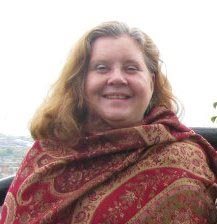What it Takes to Facilitate
Interview with an IdeaConnection Facilitator Lisa Singh By Jane Mundy
After signing up as an IdeaConnection facilitator, it took Lisa Singh, from Dayton, Ohio, several months to accept two challenges. "Working on a challenge sounded too good to be true, it sounded too easy – even though it meant working on contingency," says Singh, "but after my first successful challenge I was hooked! I could hardly wait until the next challenge." Singh had another concern. "I knew nothing about the problems [Sugarcane DNA and Bacterial Disease], and it took me at least two weeks to pronounce the terminology," she adds, laughing. "But I talked with Paul Wagorn at IdeaConnection and he explained that the challenges actually work better if the facilitator does not have subject matter expertise. I was comfortable with not knowing, and as facilitator I didn’t need to know what the team was talking about."
Singh had another concern. "I knew nothing about the problems [Sugarcane DNA and Bacterial Disease], and it took me at least two weeks to pronounce the terminology," she adds, laughing. "But I talked with Paul Wagorn at IdeaConnection and he explained that the challenges actually work better if the facilitator does not have subject matter expertise. I was comfortable with not knowing, and as facilitator I didn’t need to know what the team was talking about.""I realize that taking on a challenge is a risk and for most people it can’t be your only job. IdeaConnection’s challenges work for me because I’m not motivated by money; I get more value from meeting scientists and experts from around the world: To be part of solving a problem, to be part of something that is working for the common good, is so exciting."
"Just think: You could be part of history, and the people you work with have a similar passion – to try and solve problems."
Networking is a huge benefit: Singh has made friends with team members, some of whom she is working with again. "It is such a pleasure to be part of a global team that works so well together," she says. "For instance, my last challenge comprised three scientists in the U.S., one in Brazil, and another in South Africa." Singh believes that most of the problem solvers stay in contact after a challenge, regardless where they are in the world.
"Keeping in contact is very rewarding. And this kind of work has even opened consulting doors for me," she adds.
Lisa Singh, in her early 60s, started out as a mediator in conflict resolution. She studied for her MSc in Intercultural Communication through Antioch University and while there, realized that dealing with cultures also involves managing conflict that occurs through different cultures. She is a shoe-in to facilitate for IdeaConnection, particularly now that so many companies have "gone global" – she has worked with a lot of international teams that have a structure similar to that of IdeaConnection’s, but not with global experts, nor in a virtual environment.
"I realized early on in this field that I needed to develop skills to work with people in an international setting, so I took a number of courses and got very excited about facilitation," says Singh. "Working virtually or online is still quite new and there are few people who can do this well, at least for now…"
Singh is currently putting together teams to work on two different challenges. "I feel great and really pleased with the final product. This IdeaConnection idea is awesome," Singh says.
